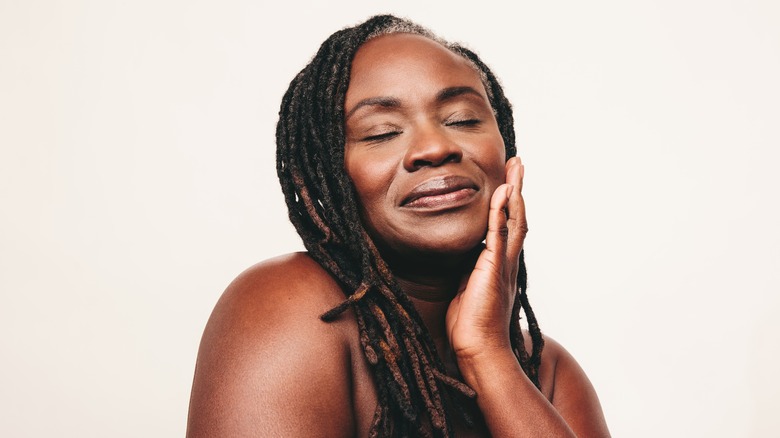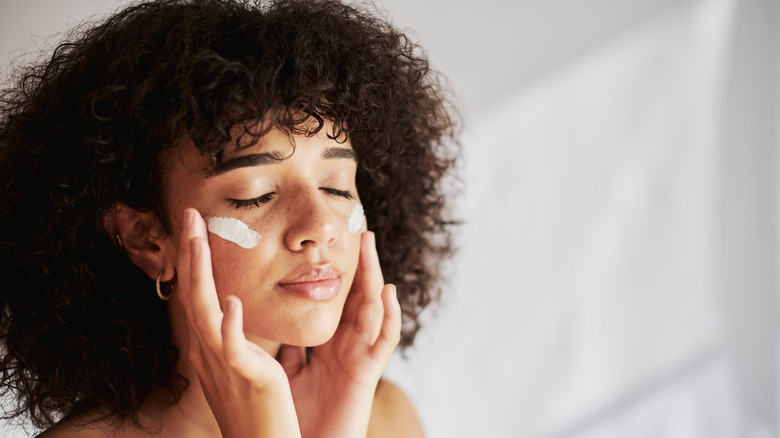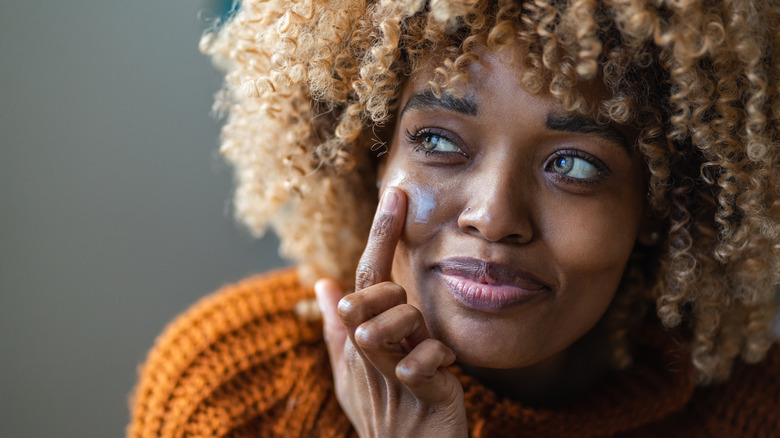What Is 'Melanin-Safe' Skincare?
Everybody has melanin in their skin, so seeing labels saying "melanin safe" can make the already complicated world of skincare products a little bit more confusing. It sounds nice, and definitely has an appeal for those with darker skin, but what does it actually mean? Is it effective? How does it work? Understanding what melanin is and its role in our skin is the first step to navigating melanin-safe skincare products.
Melanin is what produces the pigment that colors our skin, hair, and eyes. The more melanin, the darker the complexion. Genetics plays a key role in determining the amount of melanin your body produces. Higher amounts of melanin indicate ancestors that had more sun exposure than those with lighter complexes.
Melanocytes are the cells that make melanin and are located on the surface layer of skin. Melanocytes are present in everyone's skin, no matter how light or dark your skin tone is. One of the main differences, besides appearance, is how melanin affects your skin's response to sunlight. Those with melanin-rich skin have more protection against the sun's UV rays, however, sunscreen is still a must to protect yourself from experiencing hyperpigmentation, wrinkles, melasma, and skin cancer. The best sunscreens for dark skin typically are mineral-based.
What to look for
Now onto the skincare products. Melanin-safe typically means that melanin-rich skin was centered on when creating the product. While that sounds encouraging, it's not always that simple. Some companies may slap the label on there with the understanding that all skin types contain melanin, and because their product was approved by the FDA, their products are safe for topical use for melanin-rich skin along with skin types that are not.
Melanin-safe has a little bit more weight when it comes to treatments like laser treatments and acid peels. "The difference between melanin-safe treatment and non-melanin-safe treatments, in that regard, is that they're gentler so as to not cause inflammation, a big trigger for hyperpigmentation," cosmetic chemist Javon Ford told Refinery29. "As far as everyday skin-care, though, no — there isn't a difference." Additionally, skin treatments that are safe and inclusive for darker skin tones are made for specific issues, such as hyperpigmentation, tend to be effective.
Products that contain alpha and beta hydroxy acids, which serve as gentle exfoliants, moisturizers containing ceramides and hyaluronic acid, and hyperpigmentation treatments with azelaic and tranexamic acid are also good for melanin-rich skin. "Products for melanin-rich skin are typically formulated with melanocyte-inhibiting agents that help regulate melanin production to minimize excess pigmentation," New York-based dermatologist Dr. Carlos Charles told Byrdie. "They might also include ingredients that promote epidermal skin cell renewal to promote healthy skin and uniform tones."
Progress in the skincare world
Those with melanin-rich skin are more likely to experience dryness, hyperpigmentation, scarring, and skin conditions like melasma than those with less melanin. This is because the melanocytes are larger and more active in those with more melanin. Additionally, there are certain nuances to look out for; how different skin issues show up in darker skin versus lighter skin is one often leads to misdiagnosis. There has been progress, though. More education is happening, and there have been some improvements, such as the advanced technology that makes laser hair removal more accessible to those with darker skin.
While melanin-safe products tend to be especially beneficial for those who have melanin-rich skin, these products are not exclusive. Those with darker skin also aren't limited to only melanin-safe products. Products without the label can be just as helpful in keeping skin fresh and healthy as those without it. "The differences between skin tones isn't so much how you treat it, but how skin conditions present themselves," esthetician and beauty content creator Kahina Jean-Baptiste told The Zoe Report. "The idea that there is something vastly, genetically different further alienates Black people, specifically dark skinned women, and encourages otherism."


